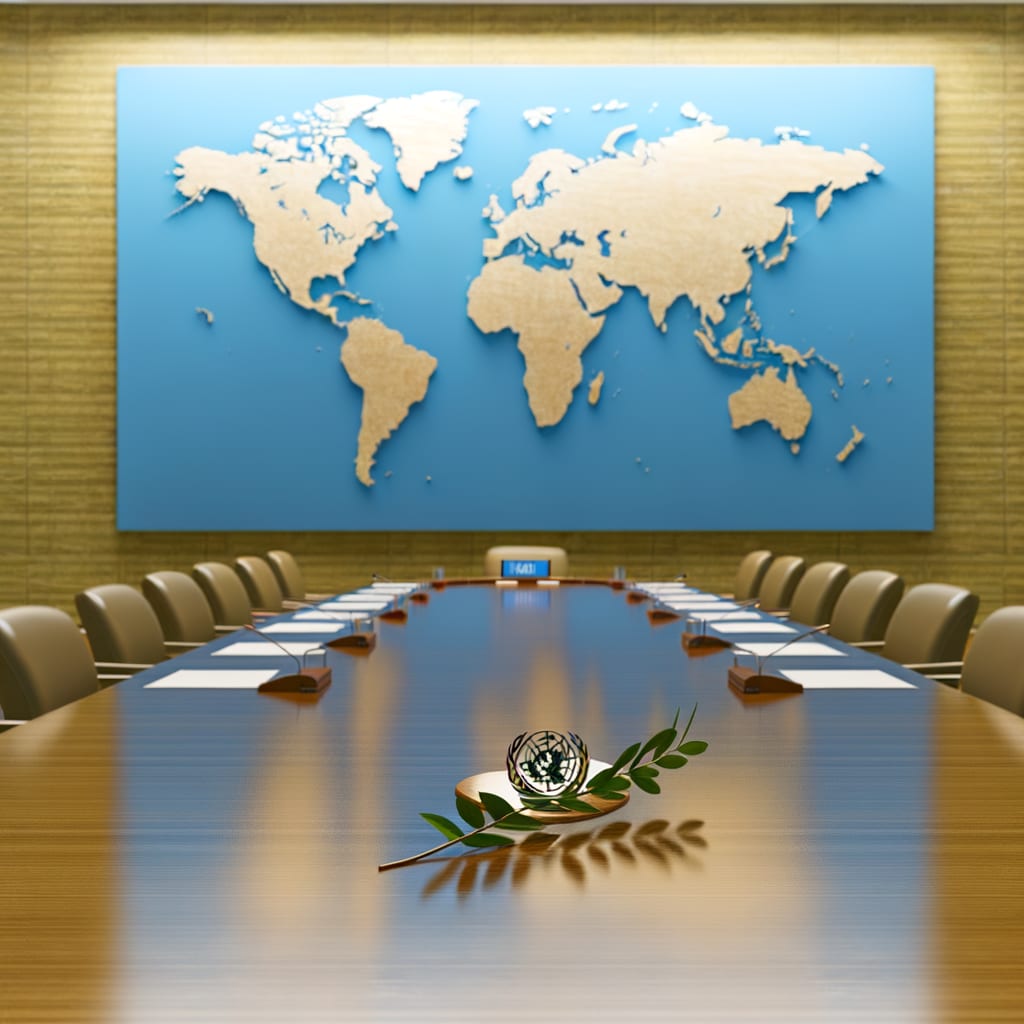UN Conference on Palestinian Statehood: Global Reactions and US-Israel Boycott
The United Nations has convened a conference on Monday to discuss the establishment of a two-state solution between Israel and Palestine, amid the escalating humanitarian crisis in the Gaza strip. However, the event, originally scheduled for June and co-hosted by France and Saudi Arabia, has been boycotted by the US and Israel, marking a significant divide in international consensus on the issue.
Background and Context
The conference comes in response to the deteriorating situation in Gaza, which has seen an increase in violence and widespread starvation. The humanitarian crisis has been exacerbated by a 12-day war between Israel and Iran, leading to the postponement of the original conference date. The UN Secretary-General Antonio Guterres has called for a decisive turning point
in the conflict.
French Recognition of Palestinian Statehood
An important development on the sidelines of the conference has been the announcement by French President Emmanuel Macron that France would officially recognize the Palestinian state in September at the annual gathering of world leaders at the UN General Assembly. This move, described as historic
by some, has been met with mixed reactions globally. French Foreign Minister Jean-Noel Barrot reiterated this commitment at the conference, stating that there is no alternative
to a two-state solution. He urged other countries to follow France's lead.
US-Israel Boycott and Reactions
However, the conference has been criticized by the US and Israel, both of whom have boycotted the event. The Trump administration has labeled the event as a publicity stunt
, with State Department spokeswoman Tammy Bruce stating that the conference would prolong the war, embolden Hamas, and reward its obstruction
. The US has also criticized President Macron's pledge to recognize Palestinian statehood, arguing that it undercuts
American diplomacy.
Israel, too, has tried to deflect blame for the situation in Gaza, denying responsibility for the widespread starvation and civilian casualties. There has been widespread international condemnation of Israel's actions, with Australian Prime Minister Anthony Albanese criticizing the killing of civilians, including children
.
Implications and Reactions
The conference, despite the boycott, has seen participation from over 50 nations, and signals a growing pressure on Israel to address the situation in Palestine. French Foreign Minister Barrot has called on the European Union to put pressure on Israel to engage in dialogue on a two-state solution. Meanwhile, Palestinian authorities have welcomed France's decision to recognize Palestine, marking a potential shift in the international dynamics of the conflict.
Current Status
As of now, the conference continues to be a focal point of international diplomacy, despite the boycott by the US and Israel. The humanitarian crisis in Gaza remains critical, with the UN and other international bodies calling for immediate measures to address the situation. The eventual impact of the conference on the Israel-Palestine conflict remains to be seen.

